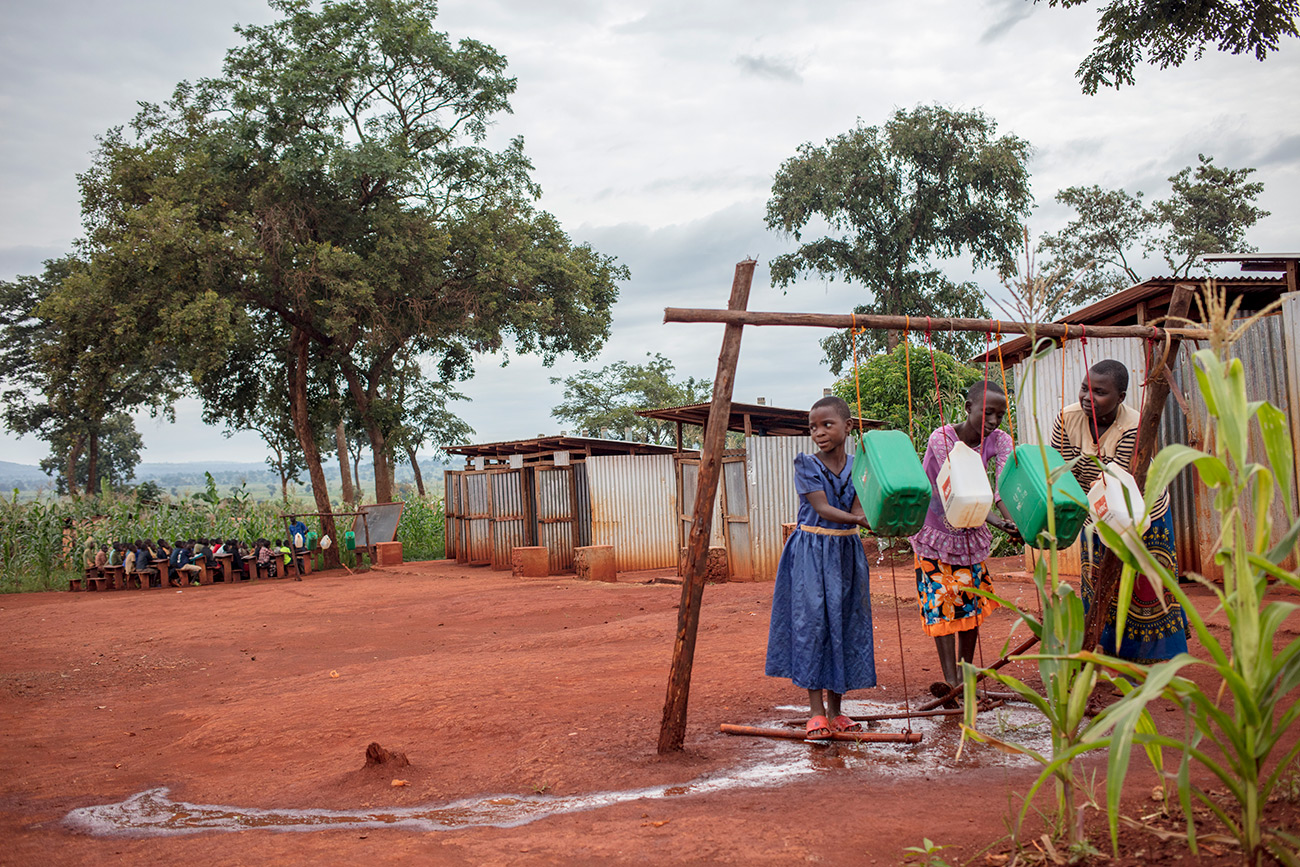How To Help Refugees: Water and Sanitation
Saving lives with safe, clean water
Photo: ©UNHCR/Anita Corluka
This has grave implications for their safety – forcing women to make long, dangerous journeys to fetch water and putting families at risk of deadly water-related diseases like cholera.
That’s why UNHCR is hard at work in camps, outside of camps and amongst urban refugee populations – running life-saving Water, Sanitation and Hygiene (WASH) programmes and delivering clean water and sanitation services to millions of vulnerable people.
Our supporters help fund
Safe clean water
Sanitation facilities

Tippy taps in Tanzania
These children attend a school for Burundian refugees in Nyarugusu Refugee Camp, Tanzania. There’s a shortage of classrooms but at least pupils now have a safe, hygienic way to wash their hands – thanks to clever ‘tippy taps’ installed with the help of UNHCR and its partners.
Tippy taps are especially appropriate for rural areas with no running water and are operated by a foot lever, so there’s less chance of transmitting bacteria from hand to hand. They’re just one of the ways that UNHCR is encouraging good hygiene, reducing the spread of disease and protecting refugee families, all over the world.
Photo: ©UNHCR/Georgina Goodwin

